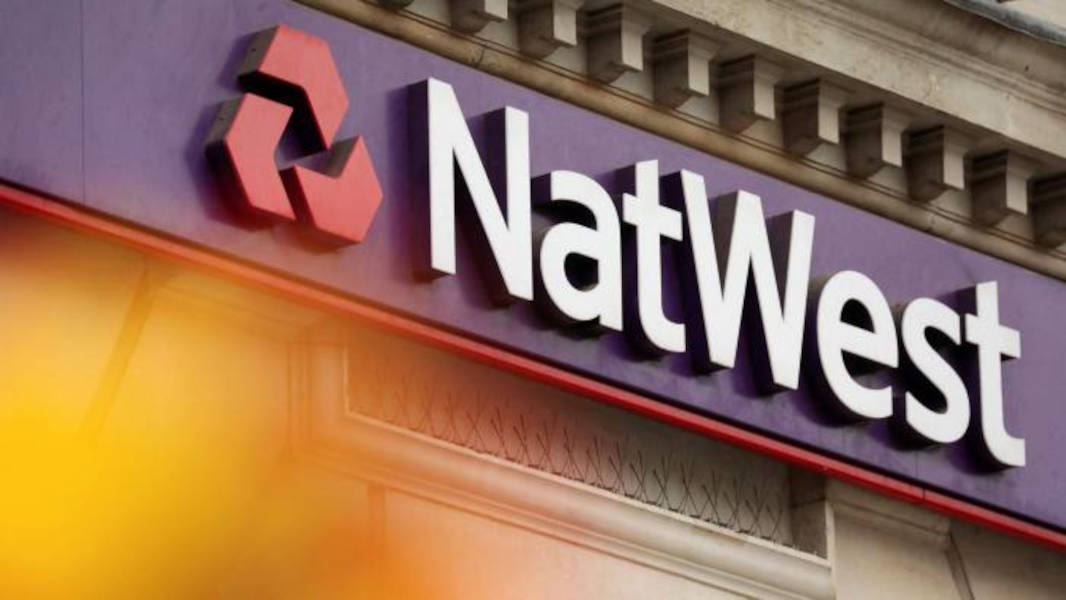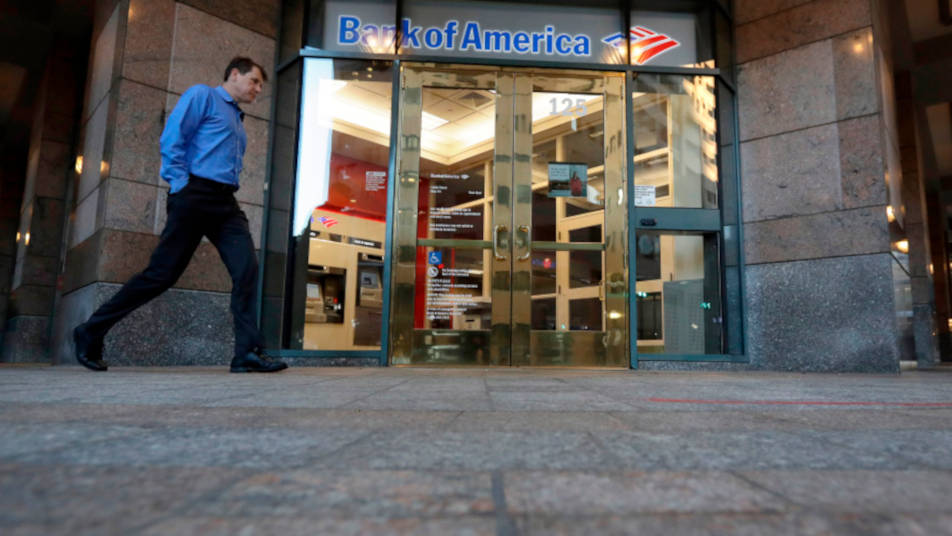Carding Forum
Professional
- Messages
- 2,788
- Reaction score
- 1,322
- Points
- 113
Growing competition from fintech startups that use cutting edge technology to create unique customer experiences is pushing big banks to innovate in response.

Among the technologies that help banks to lead is augmented reality. To use it, it is enough to give free rein to the imagination. At the same time, the blockchain gives access to data simultaneously to several parties, ensuring the integrity and immutability of records. You can also improve customer service by using robotic technology. They provide the ability to imitate human actions and judgments faster and better.
Data growth is pushing banks to look at artificial intelligence (AI) technologies, and APIs allow banks to implement entirely new business models and use cases.
Banks around the world are actively innovating. We have created a list of the most technologically advanced ones. TOP-10 looks like this.
1. Banco Bilbao Vizcaya Argentaria (BBVA)

BBVA's digital banking solution has been designed around the top 50 reasons a customer should visit a branch. As a result, about 2.5 million people chose digital channels to become BBVA members in 2020. This is 33.3% of the total number of new clients of the group. Last year, the bank increased the number of digitally attracted users by 56% compared to 2019. These results would not have been possible without the efforts made by BBVA in recent years to improve the commercial capabilities of its digital channels. For example, the group has achieved that in all countries there are at least two main products (accounts, credit cards, loans or installment plans for purchases on the Internet) available digitally.
2. DBS Bank
Bank of Singapore has always aimed to make its processes as simple, safe and efficient for clients as possible. In December 2016, DBS named DBS the "Best Digital Bank in the World", and in 2019 was named one of the top 10 most transforming companies in the world by Harvard Business Review. At the time, DBS adopted what it calls a "startup mentality" of abandoning traditional banking models in favor of integrating digital technology into all operations.
In Singapore, the number of customer registrations in the Digibank DBS Bank mobile application from June to August 2020 increased by 216% compared to the same period in 2019. At the same time, the bank reached a record of 3.5 million digital banking customers. Last year, DBS pioneered technologies such as an AI-driven virtual assistant that handles over 80% of requests. In addition to AI, the bank uses several innovative technologies to automate processes and ensure smooth operation.
3. Royal Bank of Scotland (NatWest)

NatWest is working hard to update its customer offerings with the latest technology and financial solutions. During 2018, RBS implemented a number of technologies to improve the customer experience, including Bankline, a solution that streamlines payments, offers dashboard customizations, and advanced navigation for corporate and retail customers. In March 2020, NatWest turned to Paylink, which develops software in this area, to implement Embark I&E. Its implementation allows customers to self-service after hours. NatWest also offers Apple Pay to Business credit card holders, thus providing a more secure payment method.
4. UniCredit
Digitalization is a key component of the bank's strategic plan focused on increasing productivity and improving the customer experience. UniCredit has already made significant progress in digitalisation. The company has partnered with Meniga to develop a mobile app focused on personal finance management. After a successful launch in Serbia and Italy, it has expanded to other markets in Central and Eastern Europe.
In the Czech Republic and Slovakia, UniCredit has allowed charitable donations through contactless cards and e-wallets in partnership with Apple Pay and Google Pay. The financial company has a single interface in the CEE countries. However, some jurisdictions require specification. Therefore, the bank has created a cross-architecture initiative that brings together customer-centric platforms. At first it was piloted in the Czech Republic and Slovakia, and now it has been expanded to several CEE countries.
5. Bank of America

Bank of America's digital transformation has provided a number of interesting solutions for its clients. For example, Erica, an AI-based financial digital assistant, completed 50 million queries in its first year. The gradual upgrade of online and mobile banking capabilities ensures that customers can easily and conveniently use all of the bank's services. Before the pandemic, Erica's job was to help budget.
In response to the new covid reality, the assistant was trained to recognize conditions and requests related to the pandemic, and to provide information on Merrill Lynch portfolio balances and trading activities. The result of the innovation is an improved remote banking experience for customers who want to restrict branch visits.
6. Barclays
Over the past decade, the bank has invested heavily in its technological capabilities and digital offerings. For example, in the UK, where the company's headquarters are located, Barclays has deployed the Ping It payment system, which allows you to transfer money to friends and family via a mobile number. The bank also launched a digital consulting service for its clients who have over £ 5,000 on their current account. At the same time, clients are promised a “tailor-made investment plan,” which will then be managed by the banking giant.
7. HSBC

In connection with the massive closure of physical branches during the pandemic, one of the largest UK banks HSBC has launched an educational program. It is designed to help customers move to online and mobile banking. In particular, the HSBC @ Home program raises awareness on a range of topics, from digital tools and services to fraud. Sessions are held via virtual webinars conducted by specially trained staff.
In addition, in 2020, the bank launched a number of initiatives to improve its digital services. Among them - a solution for opening a mobile account for integrated and investment accounts, remote securities trading, investment fund services FlexInvest and virtual meetings with clients via video chat.
At the end of the year, the bank introduced the HSBC Life Well + insurance solution. The initiative links Apple watches to the HSBC digital platform. This is the first of its kind solution that encourages customers to walk 9K steps per day for a reward.
8. Banco Santander
Banco Santander's investment strategy includes the introduction of the Pago FX service to facilitate international trade for SMEs. Banco Santander recently announced the acquisition of several highly specialized Wirecard technology assets in Europe. Thus, the bank expects to expand its geographical presence, as well as opportunities in the areas of e-commerce and services for international trade enterprises. Assets acquired include payment processing software and solutions for acquiring and issuing payment cards.
9. JP Morgan Chase

Among the world's leading financial institutions, JP Morgan Chase has one of the largest budgets dedicated to technology. In 2018, the company committed $ 10.8 billion. As part of its digital transformation roadmap, the JP Morgan Chase mobile app is regularly updated.
The firm often partners with financial technology leaders to stay at the forefront of innovative change in areas such as blockchain, AI, Big Data, cloud technology and robotics. The largest US bank by assets recently announced that it plans to expand its presence in the UK exclusively through its mobile app.
10. BNP Paribas
The French financial conglomerate BNP Paribas promotes a dynamic culture of innovation. Its top priority is to simplify and speed up banking by creating a unique and personalized experience. The company is committed to providing instant account-to-account transfers for EU users. For this purpose, the BNP Paribas Instanea instant payment initiation service was developed.
It can integrate with online shopping carts on websites and payment gateways to facilitate immediate settlement of transactions while maintaining security. Risks such as chargebacks are also eliminated as the customer verifies the authenticity of payments on their banking portal.

Among the technologies that help banks to lead is augmented reality. To use it, it is enough to give free rein to the imagination. At the same time, the blockchain gives access to data simultaneously to several parties, ensuring the integrity and immutability of records. You can also improve customer service by using robotic technology. They provide the ability to imitate human actions and judgments faster and better.
Data growth is pushing banks to look at artificial intelligence (AI) technologies, and APIs allow banks to implement entirely new business models and use cases.
Banks around the world are actively innovating. We have created a list of the most technologically advanced ones. TOP-10 looks like this.
1. Banco Bilbao Vizcaya Argentaria (BBVA)

BBVA's digital banking solution has been designed around the top 50 reasons a customer should visit a branch. As a result, about 2.5 million people chose digital channels to become BBVA members in 2020. This is 33.3% of the total number of new clients of the group. Last year, the bank increased the number of digitally attracted users by 56% compared to 2019. These results would not have been possible without the efforts made by BBVA in recent years to improve the commercial capabilities of its digital channels. For example, the group has achieved that in all countries there are at least two main products (accounts, credit cards, loans or installment plans for purchases on the Internet) available digitally.
2. DBS Bank
Bank of Singapore has always aimed to make its processes as simple, safe and efficient for clients as possible. In December 2016, DBS named DBS the "Best Digital Bank in the World", and in 2019 was named one of the top 10 most transforming companies in the world by Harvard Business Review. At the time, DBS adopted what it calls a "startup mentality" of abandoning traditional banking models in favor of integrating digital technology into all operations.
In Singapore, the number of customer registrations in the Digibank DBS Bank mobile application from June to August 2020 increased by 216% compared to the same period in 2019. At the same time, the bank reached a record of 3.5 million digital banking customers. Last year, DBS pioneered technologies such as an AI-driven virtual assistant that handles over 80% of requests. In addition to AI, the bank uses several innovative technologies to automate processes and ensure smooth operation.
3. Royal Bank of Scotland (NatWest)

NatWest is working hard to update its customer offerings with the latest technology and financial solutions. During 2018, RBS implemented a number of technologies to improve the customer experience, including Bankline, a solution that streamlines payments, offers dashboard customizations, and advanced navigation for corporate and retail customers. In March 2020, NatWest turned to Paylink, which develops software in this area, to implement Embark I&E. Its implementation allows customers to self-service after hours. NatWest also offers Apple Pay to Business credit card holders, thus providing a more secure payment method.
4. UniCredit
Digitalization is a key component of the bank's strategic plan focused on increasing productivity and improving the customer experience. UniCredit has already made significant progress in digitalisation. The company has partnered with Meniga to develop a mobile app focused on personal finance management. After a successful launch in Serbia and Italy, it has expanded to other markets in Central and Eastern Europe.
In the Czech Republic and Slovakia, UniCredit has allowed charitable donations through contactless cards and e-wallets in partnership with Apple Pay and Google Pay. The financial company has a single interface in the CEE countries. However, some jurisdictions require specification. Therefore, the bank has created a cross-architecture initiative that brings together customer-centric platforms. At first it was piloted in the Czech Republic and Slovakia, and now it has been expanded to several CEE countries.
5. Bank of America

Bank of America's digital transformation has provided a number of interesting solutions for its clients. For example, Erica, an AI-based financial digital assistant, completed 50 million queries in its first year. The gradual upgrade of online and mobile banking capabilities ensures that customers can easily and conveniently use all of the bank's services. Before the pandemic, Erica's job was to help budget.
In response to the new covid reality, the assistant was trained to recognize conditions and requests related to the pandemic, and to provide information on Merrill Lynch portfolio balances and trading activities. The result of the innovation is an improved remote banking experience for customers who want to restrict branch visits.
6. Barclays
Over the past decade, the bank has invested heavily in its technological capabilities and digital offerings. For example, in the UK, where the company's headquarters are located, Barclays has deployed the Ping It payment system, which allows you to transfer money to friends and family via a mobile number. The bank also launched a digital consulting service for its clients who have over £ 5,000 on their current account. At the same time, clients are promised a “tailor-made investment plan,” which will then be managed by the banking giant.
7. HSBC

In connection with the massive closure of physical branches during the pandemic, one of the largest UK banks HSBC has launched an educational program. It is designed to help customers move to online and mobile banking. In particular, the HSBC @ Home program raises awareness on a range of topics, from digital tools and services to fraud. Sessions are held via virtual webinars conducted by specially trained staff.
In addition, in 2020, the bank launched a number of initiatives to improve its digital services. Among them - a solution for opening a mobile account for integrated and investment accounts, remote securities trading, investment fund services FlexInvest and virtual meetings with clients via video chat.
At the end of the year, the bank introduced the HSBC Life Well + insurance solution. The initiative links Apple watches to the HSBC digital platform. This is the first of its kind solution that encourages customers to walk 9K steps per day for a reward.
8. Banco Santander
Banco Santander's investment strategy includes the introduction of the Pago FX service to facilitate international trade for SMEs. Banco Santander recently announced the acquisition of several highly specialized Wirecard technology assets in Europe. Thus, the bank expects to expand its geographical presence, as well as opportunities in the areas of e-commerce and services for international trade enterprises. Assets acquired include payment processing software and solutions for acquiring and issuing payment cards.
9. JP Morgan Chase

Among the world's leading financial institutions, JP Morgan Chase has one of the largest budgets dedicated to technology. In 2018, the company committed $ 10.8 billion. As part of its digital transformation roadmap, the JP Morgan Chase mobile app is regularly updated.
The firm often partners with financial technology leaders to stay at the forefront of innovative change in areas such as blockchain, AI, Big Data, cloud technology and robotics. The largest US bank by assets recently announced that it plans to expand its presence in the UK exclusively through its mobile app.
10. BNP Paribas
The French financial conglomerate BNP Paribas promotes a dynamic culture of innovation. Its top priority is to simplify and speed up banking by creating a unique and personalized experience. The company is committed to providing instant account-to-account transfers for EU users. For this purpose, the BNP Paribas Instanea instant payment initiation service was developed.
It can integrate with online shopping carts on websites and payment gateways to facilitate immediate settlement of transactions while maintaining security. Risks such as chargebacks are also eliminated as the customer verifies the authenticity of payments on their banking portal.

